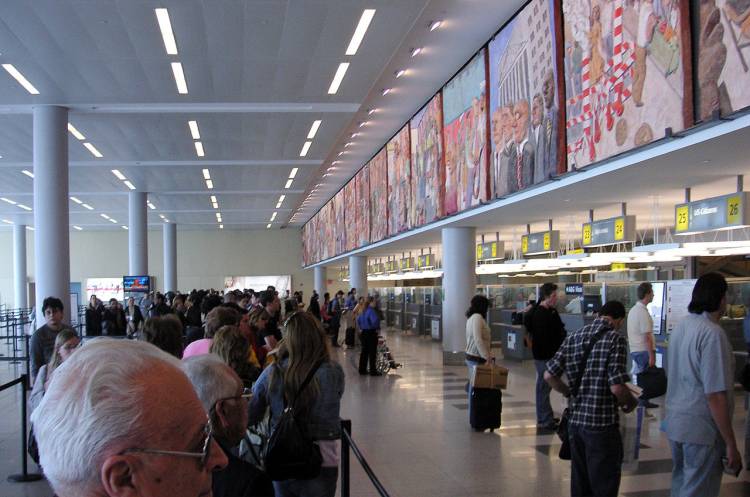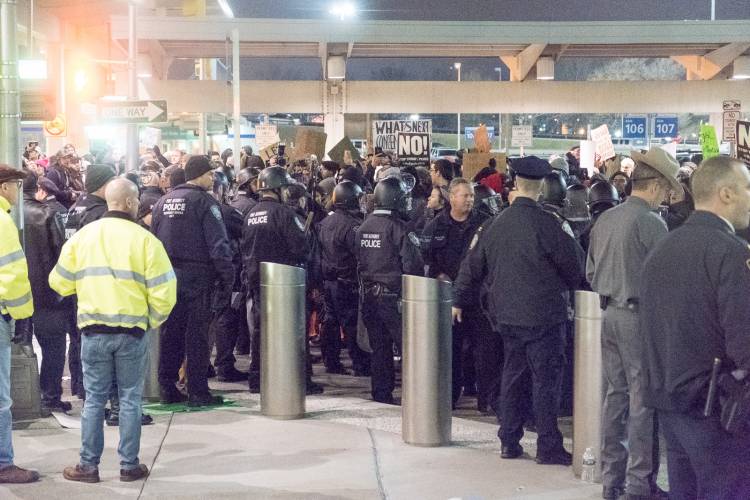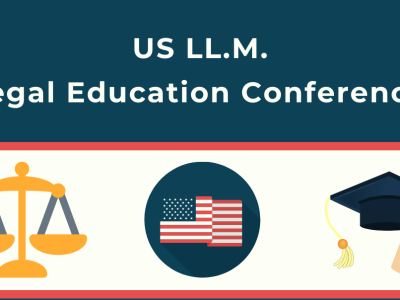You’ve managed the LL.M. application process, had the interview and scored yourself a place on a great LL.M. program. There’s only one thing left to do: secure your student visa.
There are two terms you’ll quickly become familiar with when applying to study on an LL.M. program in the US as an international student: the F-1 visa and the I-20 form. The F-1 visa is for international students wishing to study in the US, while the I-20 is a certificate of eligibility granted to you by your school or university, in order for you to proceed with your visa application.

“Essentially the form is what the students take to the consulate or embassy in their home country,” explains Colleen Ference Burke, International Student Advisor for Georgetown Law's graduate programs. “It confirms they’ve gotten into a program in the US, that they have proven they’re able to support themselves financially during the program and that they’ve met all the standards for admission.”
Once students have obtained the I-20 form, they must make an appointment with their nearest US embassy or consulate to make the visa application.
Financial requirements
But let’s take a step back.
One of the major requirements for obtaining that I-20 form is first proving you have the financial requirements of your studies covered.
Ference Burke says “students need to show they have the ability to support themselves”, both by being able to cover the tuition fees, as well as the living costs for the duration of the LL.M. program.
So how do you know how much you will need?
“It’s going to depend on the school – so it’s essentially the cost of tuition and then the cost of living in the area that the school’s located,” says Ference Burke. Most schools publish up-to-date costs on their websites.
For the 2017-2018 academic year, full-time LL.M. tuition at Georgetown Law was 61,800 USD, with total non-tuition expenses for the nine months estimated at 28,550 USD.
However, it’s important to understand what is – and isn’t – covered within schools’ stated living costs.
“Some schools are more – or less – inclusive with what they include in the cost of attendance,” says Ference Burke. “So at Georgetown we include the cost of health insurance, among other things, in the cost of living.” Not every school does this.
If you are planning to bring dependents – a partner and/or children – with you, then their living costs will also need to be covered.
Spencer Kimura, the LL.M. Program Director at the University of Hawai‘i at Mānoa says dependents “will be applying for an F-2 visa, in which case they would have to supply their passports as well, and an additional 4,000 USD per dependent is required.
You will need bank statements to prove you’ve got the financial requirements covered. And if it’s a family member or other sponsor who will cover these requirements, they need to provide specific details of how much they are able to cover.
“When the sponsor certifies support for the student,” explains Kimura, “they also must submit either a bank statement showing their account, or sometimes it’s a statement from the bank that says this individual has sufficient funds for this amount of money.”
“This is so the university can confirm to the government that this student has enough financial backing, so they won’t end up stuck in the US without enough funds.”
Visa processing times
Sam Nahidi, Interim Director of the UCLA Dashew Center for International Students and Scholars says applicants can look up the wait times at different embassies and consulates around the world on the US State Department website.
“Admitted students are eligible to apply for the F-1 visa as early as 120 days before the program start date,” says Nahidi. We recommend students to start the process of the I-20 request as early as possible after receiving the admission offer from the university.”
Ference Burke at Georgetown Law notes that although it can sometimes be difficult to get an appointment online, there is a work-around.
She says, “if there are no open appointments in time for them to begin their program, they can actually contact the US consulate or embassy directly and ask for an appointment. They treat the start date of an F-1 program as an urgent reason for an appointment.”
That way, you can make sure you will have your visa sorted with enough time to travel to the US, settle in and being orientation at your law school.
Trump's travel ban and other diplomacy challenges

Ference Burke says that with many overseas diplomatic posts still left vacant since the Trump administration took office in January 2017, her team has been a little more proactive in its communication with students.
“We always encourage students to apply early,” she says, “but even more than in previous years we’ve encouraged them to contact us as soon as possible and then to proceed with applying for visas as soon as possible.”
“We did recently experience that for a short period of time the US embassy in Turkey was not processing non-immigrant visas [which include the F-1 visa], so any student who needed to obtain a non-immigrant visa would have needed to go to another country and apply there as a third-party national.”
However, Ference Burke says as yet, these uncertainties have not prevented any LL.M. students from being able to join the Georgetown Law program.
“We have not seen a bit uptick in students unable to get appointments or students who are unable to receive a visa in time to get into the program.”
Kimura at the University of Hawai‘i at Mānoa, however, says his school’s experience has been a little different.
“So far the travel ban hasn’t affected us too much,” he says. “Although there was a case where two applicants from one of those countries under President Trump’s travel ban did not get their visa in time to come here. That was too bad for them – and for us, actually.”
Like Ference Burke and her colleagues at Georgetown Law, Kimura and his team are working with more ambiguity than usual.
“I don’t know if that’s just because there’s no embassy in their country, so it took too long to process their documents, or if it was a direct result of the travel ban,” he says. “It’s hard to say what the cause is.”
What about staying in the US after an LL.M.?
Many LL.M. students want to stay in the US for some time after graduation to seek work.
“F-1 visa students in the LL.M. program may apply for Post-Completion Optional Practical Training (OPT) as early at three months before graduation,” says Nahidi at UCLA. “OPT is a one-year employment authorization related to the major field of study and it may start after graduation.”
“Normally you apply in February,” explains Kimura, “because you can apply up to 90 days before you get employed – so that once you graduate in May, you’re able to start working, in a clerkship or with a judge, or a local firm, or such.”
“This allows students to put into practice what they have learned during their graduate studies, which is quite popular among LL.M. students,” says Kimura.
After the OPT period, LL.M.s hoping to stay in the US and work long-term usually need to apply for an H-1B visa, along with securing financial sponsorship from an employer.
The number of H-1B visas each year is capped, which means applicants enter a competitive lottery.
Images:
- Passport with stamps by Megan Eaves CC BY 2.0 (cropped)
- USA immigration at JFK by Beatrice Murch CC BY 2.0
- JFK protest by Luminary Traveler CC BY 2.0










